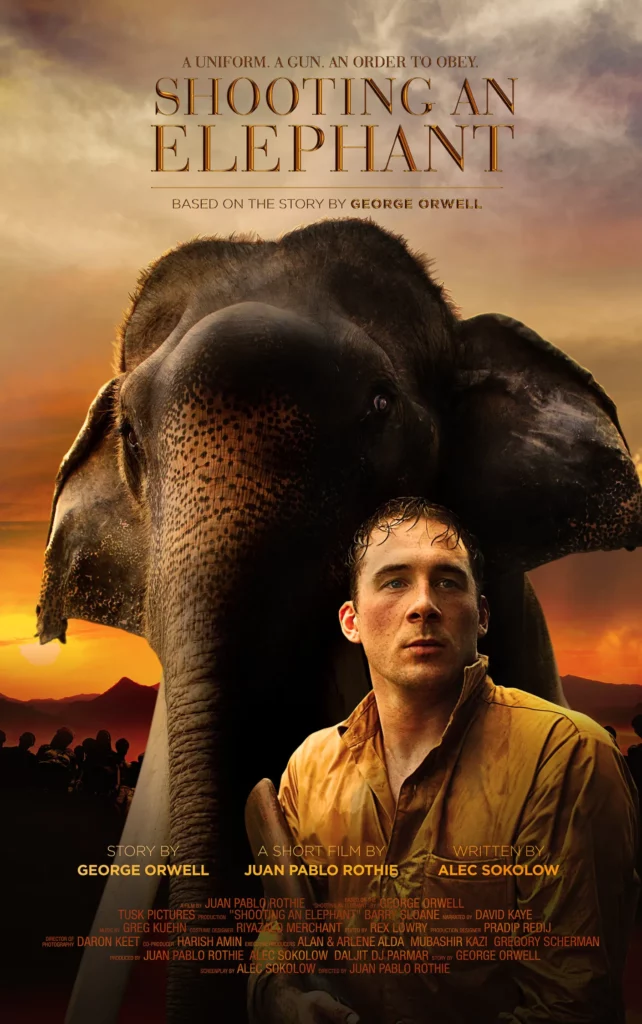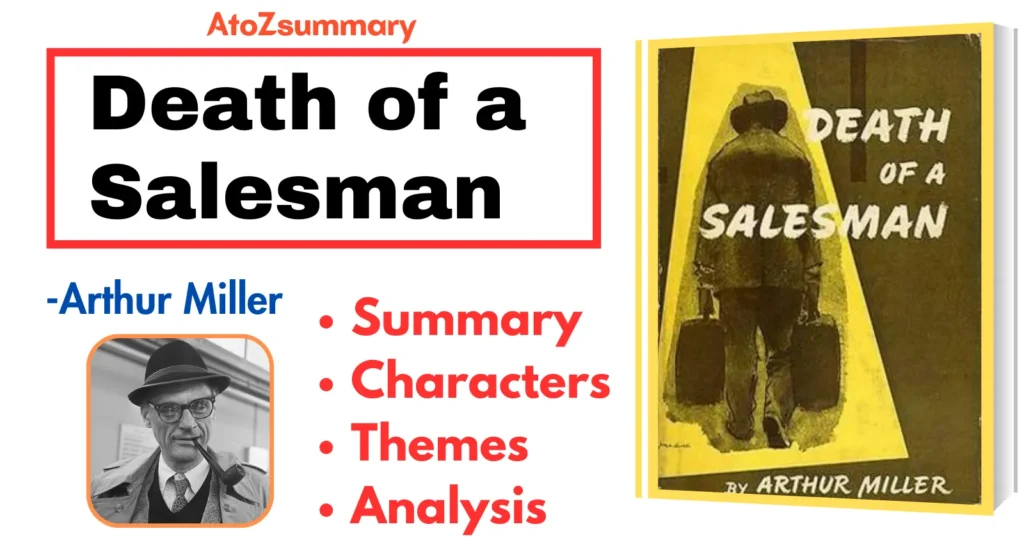
| Essay Title | Shooting An Elephant |
| Author | George Orwell |
| Publication Year | 1936 |
| Setting | British-ruled Burma (now Myanmar) |
| Main Theme | The moral dilemma of imperialism and the power dynamics between the colonizers and the colonized |
| Sub-themes | Individual conscience, the psychological effects of colonialism |
| Writing Style | Reflective and autobiographical essay |
| Narrative Perspective | First-person |
| Tone | Thoughtful, introspective, and critical |
| Key Events | Orwell’s encounter with an enraged elephant, the internal conflict leading up to the shooting |
| Significance | Illuminates the complexities and contradictions of imperialism and oppressive systems |
| Literary Influences | Orwell’s own experiences as a police officer in Burma, the oppressive nature of colonial rule |
| Impact and Reception | Widely regarded as a classic work of literature, often studied for its social and political themes |
| Related Works | “1984”, “Animal Farm”, “Down and Out in Paris and London” |
Shooting An Elephant Characters
1) George Orwell (Author/Narrator)- The essay is a reflection of Orwell’s personal experiences and moral dilemma as a police officer in Burma. He serves as the primary voice and central figure in the narrative.
2) The Burmese People – Representing the colonized population, the Burmese people are shown to be resentful of British imperialism. Their expectations and actions play a crucial role in Orwell’s decision-making process.
3) The Elephant – Though not a character in the conventional sense, the enraged elephant serves as a significant symbol in the essay. Its presence and Orwell’s subsequent decision to shoot it encapsulate the power dynamics of imperialism and the clash between the colonizer and the colonized.
4) Fellow Police Officers – Orwell mentions his interactions with other police officers who accompany him during the elephant incident. They serve as a source of support and represent the collective authority of the imperial regime.
5) The Coolie – The coolie is a laborer who suffers an injury as a result of the elephant’s rampage. Orwell briefly mentions this individual to highlight the consequences of his actions and the impact on innocent individuals caught in the crossfire.
Shooting An Elephant Themes
1) Imperialism – Critique of British imperialism in Burma, exploring its oppressive nature and dehumanizing effects
2) Power Dynamics – Examination of the power dynamics between the colonizer (Orwell as a police officer) and the colonized (Burmese)
3) Conformity and Peer Pressure – The pressures to conform to societal expectations and the influence of peer pressure
4) Individual Conscience – Reflection on the moral dilemmas faced by individuals within oppressive systems
5) Psychological Effects of Colonialism – Exploration of the psychological impact of colonialism on both the oppressor and the oppressed
6) Symbolism – The use of the elephant as a symbol representing imperialism, power, and control
7) Perception and Reality – Analysis of the disparity between perception and reality in the context of colonialism and self-perception
Shooting An Elephant Summary
George Orwell’s “Shooting an Elephant” is a narrative essay on his experience as a British Raj police officer in colonial Burma. The article digs into an inner struggle that Orwell has in his capacity as a representative of the British Empire & a law enforcer. At the start of the article, Orwell expresses his opposition to the British colonial enterprise in Burma. He explicitly states that he supports the Burmese people, whom he believes are suffering from colonial oppression. As a police officer, he witnesses the imperial project’s atrocities firsthand. He is angry by the British presence within the country.
As a police officer who represents British colonial authority, he will undoubtedly meet obstacles. The citizens of Burma despise the empire as well and consequently despise Orwell, who represents the empire. They annoy him, mock him & look for occasions to make fun of him. He argues that he was too young at the time of the occurrences to understand the problem of his situation or to know how to cope with it. As a result, he resents the Burmese people as well. The capacity to criticize and humiliate the British is one advantage the Burmese have over the British. As a result, Orwell’s main priority as a police officer becomes avoiding Burmese mockery.
The plot revolves around a single day where all of these conflicting feelings present themselves and Orwell confronts and understands them. On this day, Orwell discovers that an elephant has burst its chain and is suffering from “must” (a temporary hormonal ailment that leads elephants to become angry). The elephant is spreading mayhem as it rampages through a market. Orwell, feeling driven to do some good policing, heads out with a little rifle to see what’s going on. He claims to be innocent and has no plans to kill the elephant.
When he reaches the shanty town region, he discovers the elephant’s mess. It has destroyed grass huts, flipped a waste disposal vehicle, and killed a man. Orwell orders an elephant gun, even though he has no plan of killing the elephant. He claims that all he wants to do is defend himself. He’s escorted down to the paddy fields with the gun, where he finds the massive elephant grazing quietly.
When he initially sees the elephant, he thinks it is wrong to kill it. He has no desire to damage something so intricate and wonderful. He describes the animal’s beauty and high worth. Killing it would go against all he believed in. He claims it would be the same as murder. When he glances back to check how many people are watching, he finds that the throng is enormous—at least two thousand individuals!
He senses their attention on him and their high expectations for his performance. They want to watch the show. But, more crucially, he believes that they expect him to sustain the power performance that he is supposed to symbolize as an officer of the British Empire. At this point, Orwell has realized that all white males in the conquered globe are indebted to the people they colonize. If he falters, he will lose the mask of power, but more importantly, he will provide a chance for the people to laugh. Nothing frightens him more than the possibility of being humiliated in front of the Burmese throng.
The possibility of being crushed by an elephant no longer frightens him as it would result in death. The worst aspect of that possibility is that the audience will laugh. In this way, he sees that the empire’s entire industry is maintained afloat by individual officials’ dread of shame.
As a result, he falls to the ground and positions himself with the powerful elephant gun, which has crosshairs in the viewer and fires into the elephant’s brain. The audience roars when he smashes the elephant. However, the elephant does not die. It has a terrible transformation and appears to age. He fires again, this time bringing it to its knees slowly. But it still doesn’t go down. He fires again, and it rises dramatically on its hind legs, elevating its trunk before slamming to the ground. It is, nonetheless, still alive. Orwell walks to it and discovers that it is still alive. He continues to fire bullets into the elephant’s heart, however, it does not die.
People have flocked to steal the meat. He abandons the elephant alive, suffering horribly, without expressing his shame or regret. Later, he discovers that the elephant died in half an hour. There is some debate among the other cops regarding whether he did the right thing. The older kids believe he did. The younger generation thinks it’s wrong to slaughter an elephant for murdering a Burmese collie.
Shooting An Elephant FAQs
What is Shooting An Elephant about?
Shooting An Elephant is an essay by George Orwell recounting his experience as a British police officer in colonial Burma, where he faces a moral dilemma.
What is the main theme of the Shooting An Elephant essay?
The main theme of the essay is the complex dynamics of imperialism and the effects of power on both the colonizers and the colonized.
Why does Orwell feel compelled to shoot the elephant?
Orwell feels compelled to shoot the elephant due to pressure from the Burmese crowd and his desire to maintain authority and avoid humiliation.
What does shooting the elephant symbolize?
Shooting the elephant symbolizes the destructive nature of imperialism, the loss of individual autonomy, and the dehumanization of both the oppressor and the oppressed.
How does Orwell feel about his role as a colonial officer?
Orwell feels conflicted about his role as a colonial officer, acknowledging the injustice of imperialism while being trapped within its system.
What does the essay reveal about the nature of power?
The essay reveals the corrupting and oppressive nature of power, highlighting how it can force individuals into morally compromising situations.
How does Orwell view the Burmese people?
Orwell views the Burmese people with a mix of sympathy and frustration, recognizing their suffering under colonial rule while also witnessing their animosity towards the colonizers.
What is the significance of the essay’s title?
The title “Shooting An Elephant” refers to the pivotal moment when Orwell’s conscience clashes with his role as an enforcer of colonial power.
What does the essay suggest about the impact of imperialism on the colonizers?
The essay suggests that imperialism not only harms the colonized but also dehumanizes and corrupts the colonizers, eroding their sense of morality and individuality.










